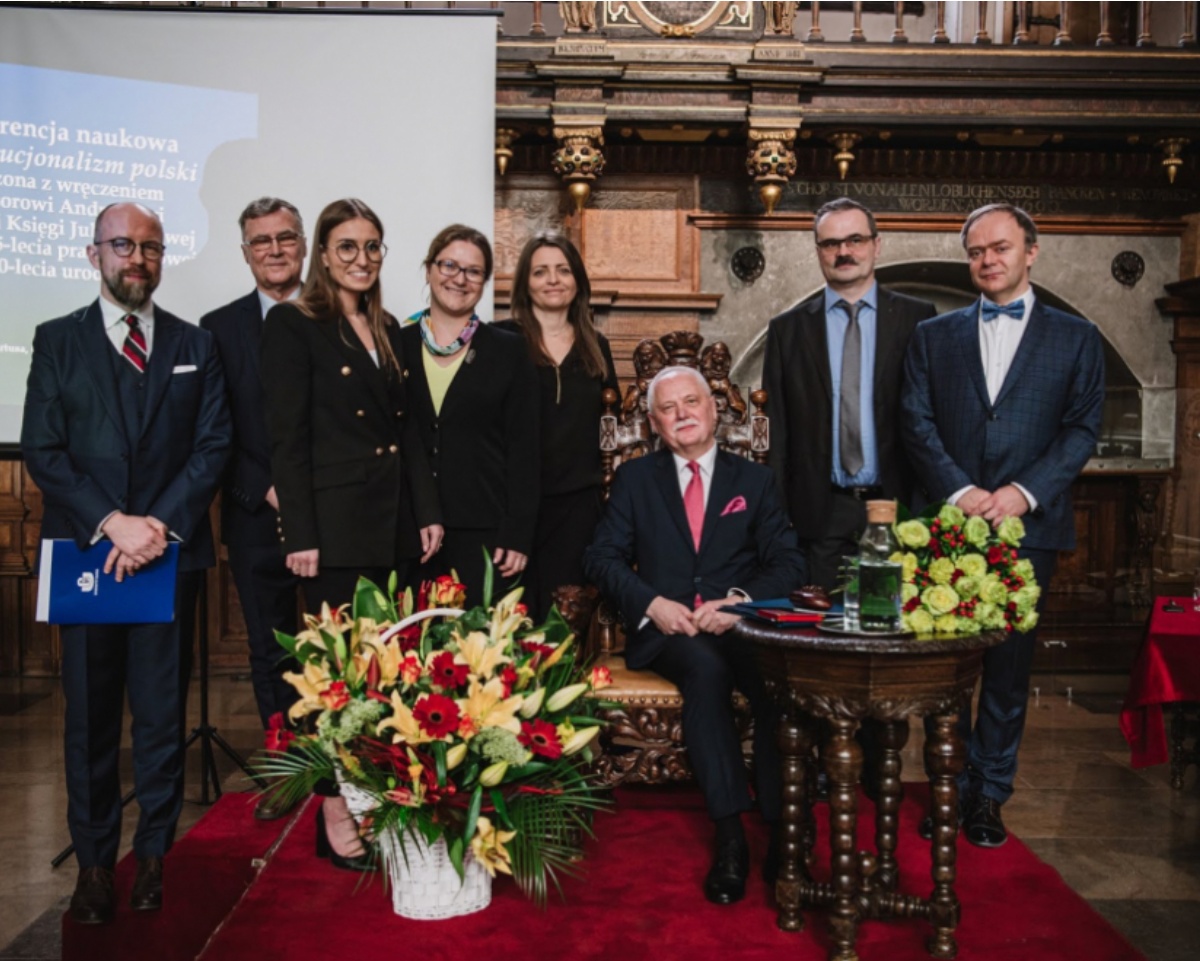
Assoc. Prof. Krzysztof Grajewski, DSc — Polish lawyer, habilitated doctor of legal sciences, associate professor at the University of Gdańsk, specialist in the field of constitutional law. Head of the Department of Constitutional Law and Political Institutions at the Faculty of Law and Administration of the University of Gdańsk. Main research areas: legal status of deputy and senator, parliamentary immunity, system of judiciary.
Assoc. Prof. Krzysztof Grajewski, DSc
Assoc. Prof. Anna Rytel-Warzocha, DSc
Assoc. Prof. Piotr Uziębło, DSc
Assoc. Prof. Marcin M. Wiszowaty, DSc
Agnieszka Gajda, PhD
Aleksandra Szydzik
The main area of research for the entire research group are the following issues: direct / participatory / deliberative democracy - both in general and in relation to specific institutions, such as: national and local referendum, civic legislative initiative, civic budget, citizens' assemblies or re-call. The team also conducts research on various aspects of the judiciary.
Individual team members also conduct individual research - often in collaboration with foreign researchers - on other topics, such as:
- Krzysztof Grajewski: legal status of a deputy and senator, constitutional responsibility;
- Anna Rytel-Warzocha: constitutional review (especially in Central-Eastern and Northern Europe);
- Piotr Uziębło: Electoral law, Direct Democracy, political systems of South America;
- Marcin M. Wiszowaty: legal regulation of Lobbying, contemporary Constitutional Monarchies, Parliamentary law and Law-making process (e.g. impact assessment, public consultation, interest groups), President – the functions, Powers and position in political system, Institutions of direct democracy, Diplomatic protocol, Law regulation of heraldry, Phaleristics, Nobiliary law (contemporary remains)
- Agnieszka Gajda: supervision of the Minister of Justice over the courts, constitutional rights and freedoms;
- Aleksandra Szydzik: established jurisprudence as a source of law.
Agnieszka Gajda, Anna Rytel-Warzocha, Piotr Uziębło: Constitutional Law (series: Law: The Basic Concepts), Gdańsk 2017, p. 202, ISBN: 978-83-7865-591-6.
Piotr Uziębło: Institutions of direct democracy, in: Polish political system: an introduction / (ed.) Jarosław Szymanek, Warszawa 2018, p. 239-255, ISBN 978-83-7666-539-9.
Krzysztof Grajewski, Dysfunctionality of the National Council of the Judiciary in the Polish Constitutional System After Statutory Changes. Resolution of the Combined Chambers of the Supreme Court: Civil, Criminal, Labour Law and Social Security of 23 January 2020, BSA I-4110-1/20, "Gdańskie Studia Prawnicze" [Gdansk Law Studies], 2020, vol. 24, no. 4, p. 161-169. DOI:10.26881/gsp.2020.4.12
Marcin M. Wiszowaty, Survey on the Constitution of the Republic of Poland: The results of the research conducted in 2017-2018 (co-authors: Piotr Radziewicz, Monika Florczak-Wątor). "ICON-International Journal of Constitutional Law", Volume 18, Issue 2, July 2020, Pages 614–663. ISSN 1474-2640, e-ISSN 1474-2659, http://academic.oup.com/icon/article-abstract/18/2/614/5880189; "Phantom regulation" or 13 years of the Polish law on lobbying and what did (not) result from it. "Le Istituzioni del Federalismo", Volume 39, Issue 3-4, 2018, p. 765-788, ISSN: 1126-7917.
Aleksandra Szydzik, Judicial activism in Poland - remarks against the background of a resolution of the formation of the combined Civil Chamber, Criminal Chamber and Labor Law and Social Security Chamber of the Supreme Court of 23 January, 2020 (BSA I-4110-1/20), "Przegląd Prawa Konstytucyjnego" [Constitutional Law Review], 2020, no. 5 p. 177-189. DOI:10.15804/ppk.2020.05.13
